
Deuteronomy 11 Cont.
Deuteronomy 11:26–28, A blessing and a curse. Based on the choices we make in life, we either choose blessings or curses. This is a divine and immutable law of cause and effect. This passage begins with the words, “Behold, I set before you this day a blessing and a curse; a blessing, if you will obey the commandments of YHVH your Elohim, which I command you this day; and a curse, if you will not obey the commandments of YHVH your Elohim, to go after other gods, which you have not known” (Deut 11:26–28). YHVH sets before each person two paths: the path of blessing and the path of curses. Regardless of whether a person even believes in YHVH, the Bible or in the laws of cause and effect, based on the choices they make, they either choose a path that leads to blessing, curses or a mixture thereof.
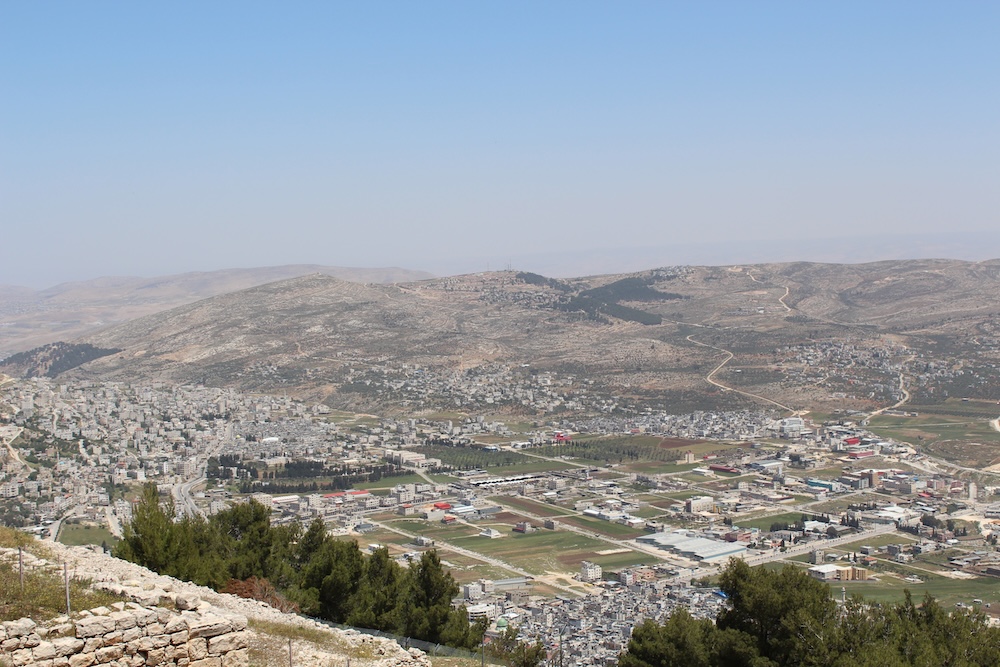
After this, in verse 29, YHVH instructs the Israelites that upon entering the Promised Land, they are to camp between the mountains of Gerizim and Ebal, both of which are located at the entry point of that land. The former mountain symbolically represents a blessing, while the later represents a curse. The town of Shechem is strategically located between these two mountains. The Hebrew word shechem means “shoulder” or “back.” Interestingly and not coincidently, one’s shoulder supports the head, which through the disposition of the mind and the direction in which the head is pointed, determines the path a person will walk whether good or evil.
It was at Shechem, between the two mountains representing good and evil, that Israel renewed its covenant with YHVH before entering the Promised Land (Josh 8:30–35). The power of the covenant that the people made with YHVH on that day thousands of years ago is still visible in the modern land of Israel: Mount Ebal is largely bare and devoid of vegetation, while Mount Gerizim is lush and green with foliage. This fact stands as a loud testimony and reminder to this day of the power of the divine blessing and the divine curse, and to the reality and validity of the cause-and-effect mechanics of YHVH’s Torah, and the ability of its laws and covenants to bless or curse us depending on whether we obey it or not.
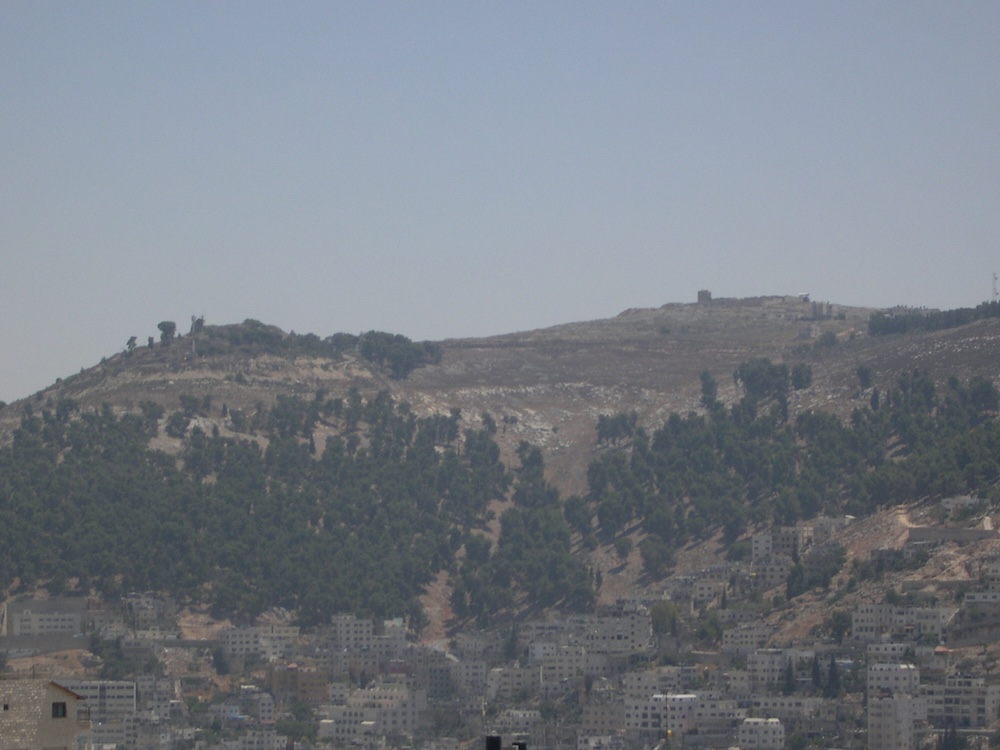
Israel renewed its covenant with YHVH at Shechem at the plains (or oak trees) of Moreh (Deut 11:30). What was significant about this place? This was the exact spot, at the entry point to the Promised Land, that YHVH had established his covenant with Abraham some 500 years earlier. We read about this in Genesis 12:6, “And Abram passed through the land unto the place of Shechem unto the plain [or oak] of Moreh [a Heb. word meaning “teacher”].” And it was to this same spot that YHVH brought Israel to renew the promises that he had made to Abraham. It was there YHVH would begin to teach them to walk victoriously and righteously before him in their promised inheritance IF only they would choose to obey his Torah (a Heb. word meaning “teachings, precepts or instructions” and a cognate to the word moreh), and turn their backs on the pagan gods and practices of the nations around them. It was also at the same spot that Jacob, upon entering the Promised Land, buried all his family’s false gods and other pagan accoutrements (Gen 35:4).
YHVH is calling his people today to make the same choice as the end time saints prepare to enter into their promised inheritance as YHVH’s kings and priests ruling with Yeshua in his millennial kingdom on this earth (Rev 1:6; 5:10; 20:6). Presently, YHVH is urging his people to come out of spiritual Babylon (Rev 18:4), that is, to come out from the world and to be separate and to touch no unclean thing (2 Cor 6:17).
As noted earlier, this passage of Scripture starts with Israel having to choose between the blessing and the curse, and whether obey YHVH’s commands, which leads to life, or disobey them, which ultimately leads to death (Deut 11:26; see also 30:15–20). Making the right choices as we go through life is what determines our outcome both here on earth and eternally in our next life, whether good or bad, life or death.
Earlier YHVH declared that it was Israel’s spiritual destiny to become a nation of priests (Exod 19:6), and as such Israel would become an example to the nations of the world of YHVH’s righteousness and the wisdom of Torah if they chose to obey him (Deut 4:6–8).
Today YHVH is calling his people, who have put their faith in Yeshua the Messiah of Israel, to be a royal priesthood (1 Pet 2:9), and to prepare to reign with Yeshua as kings and priests in his millennial kingdom (Rev 1:6; 5:10; 20:6). But first they must learn to reign over the kingdom of their own lives by overcoming the world, the flesh and the devil. To be a priest of YHVH Elohim requires that each person choose righteousness over wickedness, the holy (set-apart) over the profane (that which is defiled, polluted or worldly, see Ezek 44:23; 22:26).
One cannot represent a holy, set-apart, sinless and righteous Elohim before the nations of the world unless one is set-apart (from the world) oneself. Yeshua told his disciples that though they were in the world, they were not to be of the world (John 17:11, 14). YHVH admonished his people to be holy or set-apart as he is holy or set-apart (Lev 11:44 and 45), and the writer of the Epistle to the Hebrews declares, “Follow peace with all men and holiness, without which no man shall see YHVH” (Heb 12:14). The Bible clearly lays before man the path of holiness, righteous and blessing as opposed that of wickedness and curses. The delineations between the two paths could not be clearer. It is now up to each of us to choose which path we will follow for the rest of our lives. We will have no one to blame but ourselves if we take the wrong path!

One cannot choose that which is holy (kodosh or set-apart) from that which is unholy (defiled or polluted) unless one knows what is holy and what is not. YHVH, not man, determines what is holy. To guide man in the walk of holiness, in the rest of this Torah portion, YHVH outlines various times, places, things, actions and foods that are holy to him by which his people can enter into holiness and have holy communion with him. For example, there are holy times (the weekly Sabbath, YHVH’s annual festivals and the sabbatical year), holy places (where YHVH places his name for his people to gather to worship him), holy food (clean verses unclean meats), holy income (our material income is sanctified or made holy through our tithing a portion of it to YHVH), holy lips (YHVH’s people are forbidden to allow the names of pagan deities to come on their lips, and to take YHVH’s name in vain), and YHVH’s people are to destroy any pagan, corrupting, defiling influences (the false gods of the heathens) by putting these things out of their lives.
Being holy or set-apart is the saint’s mission and destiny as YHVH’s set-apart people, and whether we attain to the high level of holiness to which he calls us all depends on the choices we make, for good or for evil. This is all based on whether we obey or to disobey YHVH’s Torah instructions in righteousness.

Deuteronomy 11:27–28, That you hearken…If you do not hearken. The Jewish sages point out that the phrase “that to hear [Heb. shema]” is a metaphor for blessing, while “to not hear[lo-shema]” is a metaphor for cursing (The ArtScroll Stone Edition Chumash, p. 999). Hearing and doing, in Hebraic thought and according to the meaning of the Hebrew word shema, are synonymous. If one hears, but does not do what he has heard, then in reality he has not really heard. Hearing, Hebraically, is more than a superficial auditory function. Rather, it involves the activation of the heart resulting in corresponding actions resulting in either blessing (if one hears and obeys YHVH’s Word) or curses (if one does not hear and obey YHVH’s Word). Scripture prophesies that in the future a problem would arise among the people of YHVH. The problem would not be a famine of food or water, but of the ability to hear (shema) and to do the Word of Elohim (Amos 8:11). Likewise, Isaiah prophesied that there would be those who would say (or “draw near with their mouths”), but who would not do (“but their hearts are far from me,” Isa 29:13). Yeshua accused the religious hypocrites of his day of doing the same thing (Matt 15:8–9). Let’s examine our words and corresponding actions. Do they perfectly align, or does the disparity between the two convict us before YHVH of disobedience and hypocrisy? These are serious question that each of us needs stop for a moment for the busyness of life and to seriously consider, for the choices we make will have serious consequences pertaining to our future, eternal destiny.
Deuteronomy 12
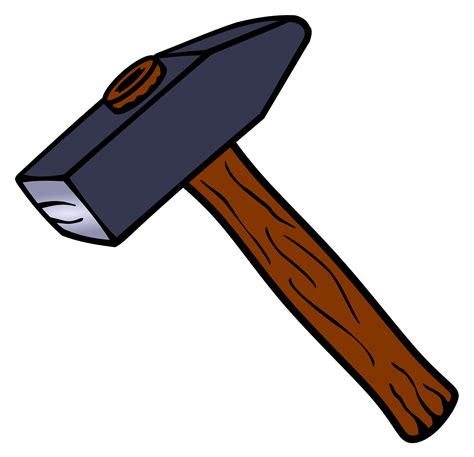
Deuteronomy 12:2ff, You shall utterly destroy. When you think of an idol, what comes to mind? Probably images of primitive people thousands of years ago prostrating themselves before carved humanesque or animal-like images of wood, stone or metal. But idols and idolatry vanish millennia ago with the people who worshipped them? No! Behind every physical idol there is an idea, concept and a spiritual belief or even a demonic stronghold that has in some manner supplanted the worship of YHVH Elohim, the one true God. What are the present-day idols and high placeswhere the world has placed its altars to its gods that as a called-out people and a set-apart nation YHVH is calling us to cast down and to destroy? Idols be they physical or material, emotional, and psychological in nature that form strongholds in our hearts and minds are things that hinder or prevent us from serving and obeying YHVH fully. What prevents you from keeping YHVH’s Sabbath and appointed times annual festivals (moedim)? What keeps you from prayer and intimate and set-apart times with him? What keeps you from hearing the voice of Yeshua and from loving him fully by keeping all of his commands? How about the love of money, television, sports, social media, your job and work schedule, family and peer pressure, fear, sinful habits and addictions, lust, greed, materialism and so on? What are you going to do about the idols in your life that are getting in the way of your relationship with your Father in heaven and Yeshua his Son and our Lord and Savior? Lord, give us eyes to see, ears to hear, a heart and mind to perceive those things in our life that keep us from you, that prevent you from having your way in our lives, from you fulfilling the glorious and auspicious plans and purposes that you have for us that are for our good. Yehovah, pour your Spirit out on us and cleanse our hearts and minds from desiring earthly things more than you! Help us to love you more with all of our heart, soul, mind and strength. Amein.
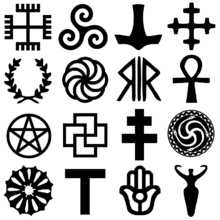
Deuteronomy 12:3, You shall obliterate [destroy, put to death] their names [i.e., the names of pagan gods]. As The ArtScroll Stone Edition Chumash points out, not only was Israel to remove the idols themselves, but they were not even to refer to them by their proper names (p. 1000). Rashi, the ancient Jewish sage, says that names of ridicule were to be coined for the pagan gods and used instead. He points out in his commentary on this verse that Jews would actually formulate derisive wordplay names based on the original names of the gods. For example, the pagan temple called, “the house of the crest” became “the house of the ditch” in that the words crest and ditch were similar in Hebrew. Or the idol “everyone’s eye” became “thorn in the eye.” A similar example of this occurred during the Second Jewish Revolt of A.D. 135. The leader of that revolt, Simon bar Kosiba, was given the name Simon bar Kochba (meaning “star”), but when his revolt failed at the hands of the Romans his detractors nicknamed him Simon bar Koziba meaning “Son of a Lie” (Rabbi Akiba’s Messiah, by Daniel Gruber, p. 165). Coming up with names of ridicule for pagan deities and concepts may seem like a silly child’s game to some, but could it not serve to indelibly imprint on the minds of YHVH’s people the seriousness of idolatry and idolatrous practices? Could this not be a means of guiding the younger generation away from the ways of evil and into the paths of righteousness? In following the Jewish interpretation on this Torah command, what are some present day “gods,” “goddesses” or modern-day idols that could use renaming? This could be a fun and creative way! What are some things that we do that fill our time and take us away from Elohim? For example, television could become hellevision. The love of sports could become “dorks” because this is what it turns people into; social media could become “social outcasts” because it is virtual and not real and ultimately leads to loneliness and emptiness; the love of money becomes “the love of funny money” because money is illusive, is only a concept—it’s not real; entertainment becomes “God-containment.” What ideas can you come up with?
Deuteronomy 12:5ff, Put his name. Where has YHVH chosen to place his name spiritually? Are you bringing your tithes and offerings to that place so that YHVH can bless you? In your life, who is YHVH using to teach and bless you spiritually? How are you helping the poor and needy? What are you doing or who are supporting to help spread the gospel to those around you? These are all biblical things that our giving helps to support.
Honour YHVH with your substance, and with the first fruits of all your increase so that your barns be filled with plenty…(Prov 3:9–10)
Give, and it shall be given unto you; good measure, pressed down, and shaken together, and running over, shall men give into your bosom. For with the same measure that you use it shall be measured to you again. (Luke 6:38)
“‘Will a man rob Elohim? Yet you are robbing me! But you say, “How have we robbed you?” In tithes and offerings. You are cursed with a curse, for you are robbing me, the whole nation [of you!] Bring the whole tithe into the storehouse, so that there may be food in my house, and test me now in this,’ says YHVH of Hosts, ‘if I will not open for you the windows of heaven and pour out for you a blessing until it overflows. Then I will rebuke the devourer for you, so that it will not destroy the fruits of the ground; nor will your vine in the field cast [its grapes,],’ says YHVH of hosts.” (Mal 3:8–11)
Giving (through tithes and offerings) is a spiritual, kingdom principle and a key to obtaining honoring and worshiping YHVH resulting in blessings and success.

Deuteronomy 12:5, Only at the place that YHVH will choose…to place his name there…shall you seek out his Presence [habitation] and come there. The word presence (as translated in The ArtScroll Stone Edition Chumash) is the Hebrew word sheken (IFA) and as a verb means “to dwell or tabernacle,” and as a noun it means “dwelling, or tabernacle.” According to The TWOT, the verb is used 129 times in the Tanakh (OT) of which 43 times YHVH is the subject; that is, it describes where YHVH dwells (e.g., on Mount Zion [Ps 74:2], among his people [Exod 25:8], or in Jerusalem [Zech 8:3]). On several occasions, it refers to YHVH’s divine and glorious presence dwelling among his people (e.g., Exod 24:16; Ps 85:9). The word mishkan, which was the portable tabernacle, sanctuary or earthly dwelling place of the glorious presence of YHVH among his people, is derived from this word. What is YHVH telling us in this verse? Namely, that his people are NOT to go just anywhere to worship him, but to go only where he has placed his name. How do we know where that is? It will be where his manifest glory and presence is to be found! Now ask yourself this question: where you fellowship and worship him collectively with other believers, is the manifest glory and presence of YHVH there to confirm that YHVH has placed his name there? If not, why not? Now let’s read Psalm 63:1–4,
O Elohim, you re my El; early will I seek you: my soul thirsts for you, my flesh longs for you in a dry and thirsty land, where no water is; to see your power and thy glory, so as I have seen you in the sanctuary. Because your lovingkindness is better than life, my lips shall praise you. Thus will I bless you while I live. I will lift up my hands in your name. (emphasis added)
Let us briefly analyze the bolded portion of this psalm of David in light of the above discussion. To see is the generic Hebrew verb ra’ah meaning literally “to see.” The word power (Heb. oz) means “might, power and strength.” This too is a generic term.

The next word is glory, which is the Hebrew word kavod literally meaning “heavy or weighty.”In this instance, in reference to YHVH, it refers to “the visible manifestation of God” and his glory and is often associated with his visible manifest presence within the tabernacle (TWOT, vol. 2, p. 943).
The next word in verse two to analyze is have seen, which is an entirely different word in the Hebrew, even though it is the same English word (to see) as used earlier in the verse. Seen is the Hebrew word chazah meaning “to see as a seer/prophet in an ecstatic way with intelligence, to prophesy, to have a vision, to gain spiritual understanding.”
The last word is sanctuary, which is the Hebrew word kodesh and is the name of two rooms in the mishkan/tabernacle: the Kodesh (Set-apart/Holy Place) and the Kodesh haKodashim (Most Set-Apart Place/Holy of Holies).
What can we gather from the wealth of information found in this Psalm? When David hungered and thirsted for YHVH as if he were about to die of thirst, he talked about seeking the presence of YHVH in the Set-Apart Place where YHVH’s name and glorious and manifest presence were to be found. There he could literally experience the presence of YHVH and gain prophetic insight and understanding.
Again, are you experiencing this kind of breakthrough in your daily walk with YHVH, and in the congregation or fellowship where you attend each Sabbath and at YHVH’s appointed-time feasts? If not, why not? What can you do to experience the intimacy with the Father that David experienced and describes here? This needs to be an ongoing and lifelong pursuit for each of us. Like David, are we continually hungering and thirsting for the presence of our Father in heaven as if we were dying of thirst in a parched and desolate desert?

Deuteronomy 12:8, Right in his own eyes. Doing what is right in our own eyes while outside the land of Israel is the religion of the wilderness. That is to say, it is difficult if nearly impossible to keep Torah exactly as YHVH prescribed while living outside the land of Israel. Some believers interpret this to mean that since it is impossible to properly tithe or celebrate the biblical feasts, for example, outside the Promised Land as the Torah prescribes, then why do these things at all? Others take the attitude that we are to serve and obey YHVH and keep his commandments the best we can no matter where we are. The former is a minimalist approach when it comes to obeying YHVH, while the latter takes the maximalist approach. Personally, I choose the latter, for I do not want to be that wicked servant in Yeshua’s Parable of the Talents who buried his talent in the soil and did nothing. Moreover, there is always much to be learned and blessings to be had when our hearts are inclined toward obedience rather than disobedience. Either way, whether we choose to obey YHVH’s commands or not, when living outside the land of Israel, we are still, to one degree or another, doing what’s right in our own eyes. For those of us who are doing our best to follow YHVH’s Torah outside the Promised Land may Nehemiah’s prayer also be ours, “Remember me, my Elohim, for good, according to all that I have done…and do not wipe my good deeds that I have done…and spare me according to the greatness of your mercy…remember me for good” (Neh 5:19; 13:14, 22, 30).
Deuteronomy 12:9, Rest. Heb. menûchâh meaning “repose or (adverbially) peacefully; figuratively consolation (specifically matrimony); hence (concretely) an abode.”
Deuteronomy 12:30ff, Ensnared to follow them. Many well-meaning believers have been snared by heathen-based rituals that have been “Christianized” and called by names such as Christmas, Easter, Lent, Halloween and the like. Have these celebrations of pagan origin snared your heart and mind as well? Why not let go of them and turn your heart toward those things that YHVH as ordained as holy and sacred and are free of any taint of paganism such as his Sabbath and biblical feasts?
Deuteronomy 13

Deuteronomy 13:1, If there arise a prophet.
In the modern (especially Charismatic) church not only is the term “prophet” carelessly thrown about, but so is the term “false prophet,” which is often applied to any Christian who simply “misses” hearing the word of Elohim correctly or interprets incorrectly what he has heard, but is not guilty of leading Elohim’s people astray spiritually into heathenism. We need to fine tune our use of these words and learn how the Bible uses them and then make sure that we do the same.
Too many Christians use the term false prophet too broadly and generically as applying to everyone who either prophecy presumptuously out of the dictates of their own heart, who hears a word from Elohim but incorrectly interpret it or misapply it (as was the case with Nathan the prophet to King David), as well as to evil prophets who lead YHVH’s people away from the Truth of Elohim and into paganism. The difference between a prophet who prophesies out of the dictates of his own heart versus a false prophet who leads YHVH’s astray spiritually must be delineated and not conflated.
The term “false prophet” is not found in the Tanakh (or Old Testament) at all, and is only occurs several times in the Testimony of Yeshua (or New Testament). There it is applied to patently evil, satanic individuals. Therefore, based on the biblical evidence, it is incorrect to apply this term to a godly individual who, for example, makes an accurate prophecy, but gets the dates wrong, or somehow misinterprets a prophetic message from YHVH.
Although the term “false prophet” is not found in the Tanakh, there are many warnings given against individuals who, through their false prophecies, lead YHVH’s people astray into idolatry or who do not urge the people to repent and return to YHVH’s straight paths of Torah-obedience, or who are otherwise involved in ungodly activities (e.g., Deut 13:1–5; 18:20–22; Jer 23:9ff; 28:1ff; Ezek 13:2ff; Isa 28:7). The term “false prophet” does not strictly apply to a godly person who is not leading YHVH’s people into apostasy.
Therefore, based on the biblical evidence, the godly person who “misses it,” so to speak, should be more correctly called a presumptuous prophet (Deut 18:22), or foolish prophet (Ezek 13:2) or a carnal prophet (i.e. who speak out of the flesh; Ezek 13:1), not a false prophet. Based on scriptural evidence, there is no justification for applying the derogatory term “a false prophet” to a Christian who simply misinterprets a prophetic word from Elohim, or who erroneously adds their own ideas to the prophetic word while assuming the message is from heaven. To be sure, one should be wary of such a “prophet,” and, if possible, teach him or her how to hear and interpret a prophetic word correctly from Elohim, but Christians should not reject them as a false prophet. For this reason and for the purpose of accountability, Paul instructed the saints in Jerusalem (and us) to judge the prophets who prophesy in the local congregation (1 Cor 14:29) to ensure that what they are saying is indeed from Elohim and is congruent with his Written Word.
Concerning the qualification of a true prophet from Elohim, the biblical record is clear. Every prophet in the Bible was Torah-compliant. There are no examples of any prophet who was not! Never did a biblical prophet claim that “YHVH’s law was done away with” or that it was for the Jews only, and not for Christians. Beware of and avoid so called Christian “prophets” who either make such false claims or whose lifestyles demonstrate that this is their belief system.

Deuteronomy 13:1–6, A prophet or a dreamer…a sign or a wonder. A prophet may claim to receive his or her vision or “a word from YHVH”, while they are awake in a vision or in a dream while asleep (The ArtScroll Stone Edition Chumash, p. 1007). According to Rashi (the Jewish Torah commentator), a sign is a supernatural event in heaven while a wonder is a miraculous event on earth. There are those among the people of YHVH who, as Adam Clarke states in his commentary on this verse, “pretend to have a divine influence, so as to be able perfectly to direct others in the way of salvation” or shows some “miraculous proof of his mission…or some type of representation of what he wishes to bring you over to” (vol. 1, p. 774). Yeshua warned about false prophets in the latter days who would deceive many (Matt 24:11), and false messiahs who might even deceive the “very elect” (verse 24). Paul talks about a “man of sin” that would arise showing signs and lying wonders such that some believers would fall from the truth of the salvation message of the gospel (2 Thess 2:1–12). Paul warns, “do not be soon shaken in mind, or be troubled, neither by spirit, nor by word…let no man deceive you by any means (verses 2–3). He then (in verses 15–17) encourages the brethren to stand fast in the simple truths of the gospel of Yeshua:
Therefore, brethren, stand fast, and hold the traditions which you have been taught, whether by word, or our epistle. Now our Master Yeshua the Messiah himself, and Elohim, even our Father, which has loved us, and has given us everlasting consolation and good hope through grace, comfort your hearts, and establish you in every good word and work.
There is no place in the Scriptures that indicates that the ministry of the prophet is not still valid within the body of Yeshua today (see Eph 4:11; 1 Cor 14 entire chapter; also Joel 2)—and all the more so as the time of Yeshua’s return draws near (see Joel 2:28–30).

How then can we tell the true from the false prophets? One simple test is this: All the true prophets of the Bible were obedient to the Torah and often their message involved rebuking YHVH’s people for Torahlessness and urging them to repent and to return to Torah compliance. This is one of the major biblical proofs to determine the validity of a prophet: they are Torah-obedient. Beware of any modern so-called “prophet” who in any way denigrates, speaks derisively of or is ignorant of the Torah. Whether one calls oneself a prophet, or whether other people call someone a prophet is irrelevant. A true prophet of YHVH must be living in accordance with and pointing people to YHVH’s Torah-Word. This is a key factor in validating the legitimacy and accuracy of one’s prophetic ministry.
As you learn more about the Hebrew roots of the Christian faith and the Written Torah-Word of YHVH, are you being led astray from the simple Word of YHVH, whether as found in the Tanakh (OT) or in the Testimony of Yeshua (NT) by people claiming to speak as an oracle from heaven? Deuteronomy 13:3 says that YHVH proves his people “to know whether you love YHVH your Elohim with all your heart and with all your soul.” Jude, the half brother of Yeshua, speaking of the spiritual delusion to occur in the last days exhorts us to “earnestly contend for the faith which was once and for all delivered unto the saints” (Jude 1:3). Are you standing firm and earnestly contending for the gospel message, or are you being allured by the siren’s song of the false prophets and teachers who lead people away from the gospel truth into spiritual delusion and eternal oblivion?
Deuteronomy 13:4, You shall walk. Based on the Masoretic Text (or MT, the standard Hebrew text from which nearly all English Bibles are translated), this verse reads as follows:
You shall walk after YHVH your Elohim, and fear him, and keep his commandments, and obey his voice, and ye shall serve him, and cleave unto him.
The Dead Sea Scrolls Bible quoting the Dead Sea Scrolls renders this verse as follows:
You shall walk after YHVH your Elohim, and you shall serve him, and listen to his voice, and cling to him, and fear him, and keep his commandment.
The editors of The Dead Sea Scrolls Bible (DSSB) comment that the syntactical (word order) variation between the two versions is significant, since the latter reading offers a definition of what it means to follow Elohim and a sequence in which the specified actions should be undertaken (p. 166, translated by Abegg, Flint and Ulrich). It could be reasoned that the sequence of steps in the believer’s growth in their walk with YHVH is more accurately stated in the DSSB.
Deuteronomy 13:5, 9–10, Put to death. It is not possible to follow this command today and to put to death apostate false prophets Therefore, all that we can do is to first to warn the false prophet of their sin, and, if they fail to repent of their error, to put the false prophet out of our midsts or to walk away from, that is, to ignore them and to have nothing to do with such a person. It would also be wise to publicly identify them and then to warn others away from the false prophet. Following Yeshua’s instructions in Matthew 18:15–20 would be applicable here.
Deuteronomy 13:18, The voice of YHVH your Elohim. What is the voice of YHVH? Is it not the Torah commandments that he audibly thundered from Mount Sinai to the Israelites and dictated to Moses from the Most Set-Apart Place in the tabernacle? Do we have the right to be selective in our hearing and are you one who “does what is right in his own eyes” (Deut 12:8)? Do you make excuses why YHVH’s words do not apply to you, why you are an exception to the rule, and why your situation is unique and special? Perhaps your finances, your marriage, your health, your family relationships and other areas in your life are a mess because you are not obeying YHVH’s voice. Let’s stop and reflect for a moment on this. Let the Spirit of Elohim speak to or convict you on this matter. Then repent and resolve before YHVH to change your attitude and course of life today!
Deuteronomy 14
Deuteronomy 14:2, A peculiar people. YHVH’s views his saints as a kadosh (holy or set apart) and peculiar or treasured people. The food that we eat (verse 3ff) is a key factor in being set-apart unto YHVH. After all, if we are returning to the Torah or biblical roots of the apostolic Christian faith and learning to study, that is, “eat” and live by YHVH’s Torah, learning to live by the “whole counsel of the Word of Elohim” (Acts 20:27), and coming away from certain paganized practices of the mainstream Christian church, how then can we still eat unclean (both physical and spiritual) food? Eating clean or kosher (pure) spiritual food goes hand-in-hand with eating kosher physical food. Are you still eating “any abominable thing” (verse 3)? These are not my words, but YHVH’s words—or commands! What excuses and carnal rationalizations that many Christians contrive in their minds whereby they make of none effect the word Elohim by their unbiblical traditions (Mark 7:8, 13) such that their belly or taste buds, in effect, become god (Phil 3:19) or an idolatrous stronghold? This is a hard word for some people to receive, but the question must be asked: how much do you love the word of Elohim and how much do you want to imitate the life of Yeshua your Messiah who was a Torah-obedient and kosher food eating rabbi as were all of his Jewish apostles?

Deuteronomy 14:2, You are…a peculiar/treasured people unto himself. The term treasured people/am segulah is used several times in the Torah. For example, in Exodus 19:5–6 when YHVH betrothed himself to and married the people of Israel at Mount Sinai, they became his am segulah or “treasured possession among all the peoples of the nation, as well as a kingdom of priests and a kadosh or set-apart nation.” Here in Deuteronomy, Moses restates this same truth to the younger generation of Israelites about to enter the Promised Land in our present verse, and in Deuteronomy 26:17–19 where again he calls Israel YHVH’s “treasured people” and admonishes them to keep his Torah-commands that he might “make you high above all the nations, which he has made, in praise, and in name, and in honor, and that you may be a set-apart people unto YHVH your Elohim.” What passage in the Testimony of Yeshua does this remind you of? (Read 1 Peter 2:9.) Note that YHVH has chosen us from among all the peoples of the earth. As A Torah Commentary For Our Times points out, “This idea that God selects or designates the people of Israel as an am segulah remains a central belief in Jewish tradition. The prophet Malachi (3:17) uses the term. So does the Psalmist who, singing in the Jerusalem temple, praises God for having ‘chosen Jacob—Israel—as a treasured possession’” (Ps 135:3–4; p. 132). With humility, contrition and gratefulness, do you , as a grafted in Israelite, own this identity? This is who you are and your spiritual identity before Elohim (Eph 2:11–19). Peter repeats this same idea of the saints being a special people to YHVH.
But ye are a chosen generation, a royal priesthood, an holy nation, a peculiar [or treasured or special] people; that ye should shew forth the praises of him who hath called you out of darkness into his marvellous light: which in time past were not a people, but are now the people of Elohim: which had not obtained mercy, but now have obtained mercy. (1 Pet 2:9–10, emphasis added)
If you know that you are a special treasure and a called-out people destined for great things in the kingdom of Elohim will not the reality of who you are and whose you are and what you are to become affect your walk of righteousness here and now? Does this not inspire you to walk a little higher, a little more set-apart, a little closer to YHVH, and to be a better spiritual light through your words, thoughts and deeds to the heathens around you?
Deuteronomy 14:21, Anything that dies of itself…sell it to a foreigner. Why does YHVH forbid Israelites from eating a presumably kosher animal that dies of itself, but allows it to be sold to a Gentile? Because, as this verse states, Elohim calls his people holy or set apart. Why? Because they are in a covenantal relationship with YHVH; they have been called out of this world; thus, the world’s lower moral standards are not to be their standards. YHVH calls his people to a higher standard than that of the nations around them and this includes the food they eat. On a practical level, YHVH forbids his people from eating blood (Lev 7:26–27; 17:10–13; Deut 12:16; 15:23). When an animal is butchered, it is imperative that the blood be drained immediately (ibid.). However, when an animal dies of itself, the blood that remains in it will immediately begin to coagulate thus preventing the blood from being completely drained from the animal. Again, Torah forbids YHVH’s people from eating blood.
Deuteronomy 15
Deuteronomy 15:4, Except.The implication here seems to be that when lending to someone who is not poor, it is acceptable to expect them to pay you back after the seven year time limit. This is because the rich person doesn’t really need your money, but is likely using it like a business loan or venture capital to make more money.
Deuteronomy 15:7, Among you a poor man.
The Roots of Socialistic Government Welfare Handouts Vs. the Biblical Command to Work & Charitable Giving
Multiple times, the Scriptures enjoins those who have been blessed materially to help those who are poor. In fact, YHVH even has a special place in his heart for those individuals who have fallen into poverty, namely, the widows and the fatherless (Deut 14:29; 16:11, 14; 24:19; 26:12–13; 1 Tim 5:3). Let’s now discover some biblical guidelines about charitable giving.
Yeshua declared that the poor would always be among us (Matt 26:11), so there will never be a lack of opportunity for the colloquial “haves” to help “the have-nots.” Furthermore, YHVH promises to bless us when we give to the poor (Ps 41:1–3) as well as to those who have dedicated their lives to serving YHVH’s people through the ministry (Deut 14:29; 16:14; 26:12–13).
In Deuteronomy 15:7, we discover that there are levels of priorities in our charitable giving. Our first responsibility is to help a poor person who is a brother, that is, who is a member of our immediate family, or someone who is like a brother to us. Second, we are to help those in need who reside in our gates, or are a member of our immediate community. Finally, and last, we are enjoined to extend our charitableness toward those who are in need in our own land or country. The idea here is that our charitable giving is to go first to those who live the closest to us, and then go out from there geographically as we are able to do so financially. Too many churches have it backwards. They support the poor in other countries through evangelistic outreach, while neglecting the mission field or charitable giving in their own backyard.
In the Torah, there is a social welfare system in place to help the needy, but it comes with strict guidelines. For example, YHVH instructed the Israelites to set aside a certain portion of their income to help the poor (Deut 14:28–29). For the ancient Israelites, this was a sort of social welfare system whereby those who had been blessed materially were commanded to help those who were in need.
Moreover, the Torah had other social mechanisms whereby those who had fallen into poverty had the means to work themselves out of that economic state. There was no such thing as sitting idly and expecting a handout from society! For example, a poor and indebted person could sell themselves into servitude for a period of time until they worked themselves out of debt (Exod 21:2; Lev 25:39–55). Every seven years, debts were forgiven (Deut 15:1–2). Those who had an abundance financially and were in position to loan money to a poor person were forbidden from charging the lender any interest (Lev 25:35–38). Moreover, a poor person who had land could also sell their land to raise money; however, at the end of the 50 year jubilee cycle, that land would be given back to them (Lev 25:8–17).
Laws were in place where the poor wouldn’t starve to death. Two Torah laws insured this. Those who had agricultural lands were neither to glean their fields after their initial harvest, nor were they to reap the corners of their fields. The poor were allowed to come back into the fields after the harvest and to reap anything that remained (Lev 19:10; 23:22; Deut 24:19–21). Moreover, they were allowed to eat freely of the agricultural produce every seventh year (Exod 33:11). In fact, the entire book of Ruth is the story of how this system worked such that the well-to-do helped the poor. There was no system in place where the government gave a person vouchers to receive free food; you still had to go out and work for it. Paul in the Testimony of Yeshua reiterates this truth.
But if any provide not for his own, and specially for those of his own house, he hath denied the faith, and is worse than an infidel. (1 Tim 5:8)
In our day, too many believers refuse to work and support their family. This includes so-called “dead beat dads” who fail to pay child support, men who rely on their wives to support them financially, and able bodied men who, somehow, have snagged a government disability check but who are fully capable of working. Grifting off of other people and laziness and irresponsibility is not value that the Bible extols, but quite the contrary.
Go to the ant, thou sluggard; consider her ways, and be wise: which having no guide, overseer, or ruler, provideth her meat in the summer, and gathereth her food in the harvest. How long wilt thou sleep, O sluggard? when wilt thou arise out of thy sleep? Yet a little sleep, a little slumber, a little folding of the hands to sleep: so shall thy poverty come as one that travelleth, and thy want as an armed man. (Prov 6:6–11)
There is one key fact that stands out in the Torah’s social welfare system however. The poor had to work for their food. In fact, most Bible students are aware of the fourth commandment, which tells instructs the righteous to rest on the seventh day of the week—the Sabbath. However, many people overlook the rest of this command; namely, everyone is to work for the six days prior to resting on the seventh-day Sabbath. In fact, working for six days is as much a biblical, ten-commandment command as is resting on the seventh day.
Six days shalt thou labour, and do all thy work: but the seventh day is the sabbath of YHVH thy Elohim: in it thou shalt not do any work, thou, nor thy son, nor thy daughter, thy manservant, nor thy maidservant, nor thy cattle, nor thy stranger that is within thy gates. (Exod 20:9–10, emphasis added)
Moreover, in the Bible, there was no such thing as retirement, or sitting back idly and waiting for a government welfare check to show up in your mailbox, while a person sat around watching television, playing video games or doing social media!

The concept of idly sitting around and collecting public assistance for doing nothing was unheard of in the Bible and is contrary to the Torah. This is a socialistic and an evil Marxist concept and a form of wealth redistribution, which is a form legalized theft, and disincentivizes one from working. We do not live in a so called “workers paradise” despite the propaganda that tells us otherwise. There is no free lunch! This concept is anathema to the biblical concept of hard work, personal responsibility, and encourages laziness and thievery. In fact, socialism according to Karl Marx, who was the father of modern communism, taught that socialism is a step to a complete communist “utopia.” Such a system has proven to be a miserable failure everywhere it has been tried including the Soviet Union, Cuba, Communist China, North Korea Cambodia, Venezuela and many more countries. Who wants to live in such places? If such a system is so successful and acceptable, then why Marxist-socialistic governments have to construct walls to keep their people from escaping these countries, and why do people risk their lives trying to escape?
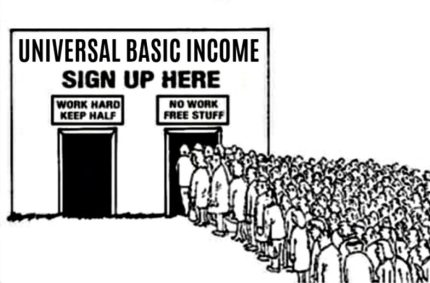
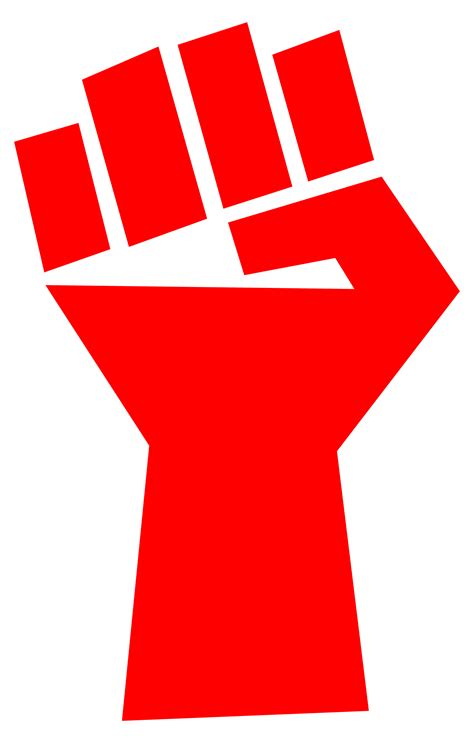
Moreover, so called “democratic socialism” has not proven to be a success story either, but has resulted in high taxes, loss of personal liberties, highly regulated societies, government over-reach, high costs of living and massive debts in the countries where it has been tried.
Socialism and communism are a failure in part because they disincentivize people from working hard and enjoying the fruits of their labors. Socialism also promotes laziness, stifles creativity, free enterprise and ingenuity. This is because the more one works, the more the government takes from a person and gives to those who do not work. Why work hard and be creative under such a system when the rewards for your work will just get taken from you anyway? That is why socialistic economies eventually go to ruination and result in the devolution of societies.
Socialism is a system that is based on theft, greed, covetousness and the love of money and power by the ruling elite as the expense of the working person. The devil who comes to steal, kill and destroy (John 10:10) is the father of communism. Simple-minded people fall for the lies of socialism and communism in hopes of getting something for nothing. Thus socialism and communism prey on man’s innate penchant toward laziness and inertia.

Modern socialism and communism, the brainchild of Karl Marx, a God-hating Luciferian, promotes legalized theft, murder and destruction. Why wouldn’t it? It originates from the mind of Satan. Socialism operates an the basis of government mandated legalized theft and destroys free enterprise, one’s incentive to work hard and the desire for self-improvement. Such a system is ungodly and Satanic and brings about the destruction of society and personal well-being.
Above and beyond all of this, socialism does not encourage a man to work to provide for his own household as the Bible commands. If one does not work to support his family, according to Paul, he “has denied the faith and is worse than an unbeliever [or a heathen]” (1 Tim 5:8). This is a serious indictment against socialism and those who live on social welfare! In fact, with regard to the church helping those who were poor, Paul declared that those who refused to work should not eat (2 Thess 3:10). The idea here is that if one gets hungry enough, he will get of the couch and find a job, since hunger is a powerful motivator to finding employment!
At the same time, YHVH requires the righteous to help those who are legitimately in need, especially the widows. However, before a widow could become dependent upon the church, the widow’s family was to support her financially (1 Tim 5:4). For widows over the age of 60, there were stringent requirements before she could receive any financial help from the church; namely, she had to be performing acts of service to members of the church (1 Tim 5:9–10). A widow who was younger was required to work or to marry someone who could support her financially (1 Tim 5:11–14). At the same time, there is no mention here of the church or society having to care for a single man over the age of 60! Evidently, Paul expected man to work.
One thing is clear in the Bible with regard to the poor, there are no examples of lazy, pan-handlers or able bodied people receiving financial assistance from society, and there are no requirements for the saints to help such people.

Moreover, the global trend and march toward socialism and communism encourages the very things that the Bible denounces and will thus result in everyone being in poverty except for the super-rich who control the means of production and the distribution of goods. Such a system enveloping and strangling the earth was prophesied long ago to occur in the last days before the second coming (see Revelation chapters 13 and 18). Such an economic and political system if a form of neo-feudalsim where the ruling elites (the bankers, industrial oligarchs along with their political cronies control the working class for their personal benefit and “lived luxuriously” (Rev 18:9) even to the point of trafficking in “the bodies of souls and men” (Rev 18:13). One verse in Revelation sums up this neo-feudalistic, so called “workers’ paradises”:
…for thy merchants were the great men of the earth; for by thy sorceries [Gr. pharmakeia] were all nations deceived. (Rev 18:24lp)
Deuteronomy 15:9, Your eye be evil. This is a Hebraic idiom for one who is covetous. (This phrase is also found in Prov 23:6; 28:22; Matt 6:23; 20:15; Mark 7:22; Luke 11:34.)
Deuteronomy 15:10, Elohim will bless you. Here we see the law of reciprocity revealed, that is, what goes around comes around. When we give charity to those who are unable to repay us, YHVH insures that we will be blessed.
Deuteronomy 15:17, Take an awl…door. The permanent hole that is left in the door after this ritual is performed will be a visible proof and silent testimony to all who enter that house that the servant has chosen to remain and to serve that family forever.
Deuteronomy 16
Deuteronomy 16:1ff, Keeping the biblical feasts. How important are YHVH’s feast days (annual set-apart times or moedim) to you? The ancient Israelites and first-century Book of Acts saints planned their entire year’s schedule around them. That was how important YHVH’s annual festivals were to the biblical saints. Many saints will travel long distances to take a vacation or to go to a conference, and yet at the same time fail to set aside the time to obey YHVH’s voice by keeping his appointed times. How easy it is let our jobs, school or other secular activities dictate how or if we keep the feasts or not. When this occurs, what does this scream loudly about the status of our spiritual priorities? What does Elohim think about our excuses about why we cannot take the time and effort observe these holy times that he has commanded us to do, yet we are able to find the time to satiate our carnal desires and appetites?
Let us not forget that YHVH’s biblical feast days are the skeletal framework of his entire plan of redemption (or salvation) for mankind including those under the new covenant who keep his commandments and have the testimony of Yeshua the Messiah (see John 14:15, 21; Rev 12:17; 14:12; 22:14). One cannot, in good conscience, be true to biblical Truth and keep the weekly Sabbath without keeping YHVH’s annual sabbaths. The weekly Sabbath and YHVH’s annual sabbaths or feasts stand and fall together.
Speak thou also unto the children of Israel, saying, Verily my sabbaths [i.e., YHVH’s weekly and annual sabbaths or feasts] ye shall keep: for it is a sign between me and you throughout your generations; that ye may know that I am YHVH that doth sanctify you. (Exod 31:13)
Ye shall fear every man his mother, and his father, and keep my sabbaths: I am YHVH your Elohim.…Ye shall keep my sabbaths, and reverence my sanctuary: I am YHVH. (Lev 19:3, 30)
Moreover also I gave them my sabbaths, to be a sign between me and them, that they might know that I am YHVH that sanctify them. But the house of Israel rebelled against me in the wilderness: they walked not in my statutes, and they despised my judgments, which if a man do, he shall even live in them; and my sabbaths they greatly polluted: then I said, I would pour out my fury upon them in the wilderness, to consume them.…Because they despised my judgments, and walked not in my statutes, but polluted my sabbaths: for their heart went after their idols.…And hallow my sabbaths; and they shall be a sign between me and you, that ye may know that I am YHVH your Elohim. Notwithstanding the children rebelled against me: they walked not in my statutes, neither kept my judgments to do them, which if a man do, he shall even live in them; they polluted my sabbaths: then I said, I would pour out my fury upon them, to accomplish my anger against them in the wilderness.…Because they had not executed my judgments, but had despised my statutes, and had polluted my sabbaths, and their eyes were after their fathers’ idols. (Ezek 20:12–13, 16, 20–21, 24)
Thou hast despised mine holy things, and hast profaned my sabbaths. (Ezek 22:8)
In the final analysis, jobs, schooling, friends and the praises and acceptance of men will all pass away, but our relationship with Elohim will determine our eternal destiny including the rewards we receive in YHVH’s eternal kingdom (Rev 19:8; 20:12–13). Isn’t it time that we got serious about putting YHVH-Yeshua first in our lives by loving him and keeping his commandments including making time for him in our lives by observing his sabbaths (John 14:15, 21)?
Deuteronomy 16:9, Sickle to the grain.Can a barley farmer reap his field before the wavesheaf offering is made on Firstfruits Day? According to the first century Jewish historian Flavius Josephus, the Jews did not cut their barley harvest prior to Firstfruits Day.

But on the second day of unleavened bread, which is the sixteenth day of the month, they first partake of the fruits of the earth, for before that day, they do not touch them. And while they suppose it proper to honour God, from whom they obtain this plentiful provision, in the first place, they offer the first-fruits of their barley, and that in the manner following: They take a handful of ears the ears, and dry them, then beat them small, and purge the barely from the bran; they then bring deal to the altar, to God: and, casting one handful of it upon the fire, they leave the rest for the use of the priest; and after this it is that they may publicly or privately reap their harvest” (Antiquities of the Jews, book 3, 10:5, emphasis added).
Based on Josephus’ testimony and Deuteronomy 16:10), some people take the position that the Israelites could neither harvest their spring barely crop, nor eat it until the priests first offered the wavesheaf offering. But does this Jewish tradition actually line up with the Torah? Not all Jewish traditions do (Mark 7:9).
In the past, I taught that a farmer could neither reap nor eat of his barley before Firstfruits or Wavesheaf Day. Upon closer examination of the Torah scriptures relating to this subject, I have changed my position on this point. This is because the Torah does not actually prohibit a farmer from reaping his barley field should it come ripe prior to Wavesheaf Day, just as long as he does not eat of it.
The Torah mandates that one cannot eat any barley from their crop until the Firstfruits Day offering is made (Lev 23:14). But what if a farmer’s barley came ripe before Firstfruits Day? Could he harvest his crop as long as he did not eat of it until the omer offering was made? Actually, there is no prohibition in the Torah from doing this. Some may point to Deuteronomy 16:9 as proof that a farmer is prohibited from cutting his barley before Firstfruits Day.
You shall count seven weeks for yourself; begin to count the seven weeks from the time you begin to put the sickle to the grain.
Now let’s compare this passage to a more detailed instruction found earlier in the Torah and one which is more specific to Firstfruits Day.
Speak to the children of Israel, and say to them: ‘When you come into the land which I give to you, and reap its harvest, then you shall bring a sheaf of the firstfruits of your harvest to the priest. ‘He shall wave the sheaf before YHVH, to be accepted on your behalf; on the day after the Sabbath the priest shall wave it. And you shall offer on that day, when you wave the sheaf, a male lamb of the first year, without blemish, as a burnt offering to YHVH.’ (Lev 23:10–12)
In this scripture, we find two action occurring. They are reaping the barley harvest and subsequently bringing that harvest to the local priest who lived in the farmer’s village or region. Nowhere does this verse say that the reaping of the grain and the day the priest must make the wave offering (on Firstfruits Day) are on the same day. That is to say, if a farmer’s field of barley comes ripe earlier than Firstfruits Day, he is not prohibited from reaping it; rather, he simply is prohibited from eating the barley before Firstfruits Day (Lev 23:14). Therefore, the barley farmer has the Torah’s permission to reap his crop before Firstfruits Day (as long as he does not eat it). This insures that he will not lose his crop (i.e., the barley seed will not fall to the ground), while he is waiting for the omer offering to be made on First Fruits Day.
This is important because even though Israel is a small country, because of its extreme elevations and topographical variations as well as climate differentials, there is a wide time frame in which the barley in different regions comes ripe. For example, the barley in warmer regions at lower elevations tends to ripen before the barley in higher elevation. And because there are so many microclimates, grain may ripen in one valley, while in the next valley it may still be green. Therefore, the farmer needs to have the liberty to reap his grain, if necessary, before the wavesheaf offering is made, for fear the grain will come ripe and drop the ground, while the farmer is waiting for Wavesheaf Day to occur. Ancient farmers could not afford to lose their crops then any more than they can today.
Since the Leviticus 23:10–12 passage is the primary command pertaining to Firstfruits Day and gives us more specific information and occurs prior to the Deuteronomy 16:9 passage, the basic rules of biblical interpretation (or hermeneutics) require use to interpret the latter passage in light of the former passage and not vice versa. Moreover, Deuteronomy 16:9 is a general rule that informs us when the barley harvest generally was to commence, and not a specific command stating when or when not an individual farmer could begin harvesting his barley grain. This is why Deuteronomy 16:9 cannot be cherry-picked out as a stand-alone verse without the previous context of Leviticus 23:10–14 taken into consideration.
Deuteronomy 16:13, After that. How was it possible to keep the Feast of Tabernacles only after all the crops had been gathered in? Understanding the Hebrew resolves the question. The KJV reads:
Thou shalt observe the feast of tabernacles seven days, after that thou hast gathered in thy corn and thy wine.
The word corn in Hebrew goren meaning “barn, barn floor, corn floor.” Hirsch in his commentary on this verse translates it as follows:
The Festival of Sukkoth shalt thou make unto thyself seven days, by gathering up from thy barn and they wine-press.
Other translations render it accordingly:
…when you gather in from your threshing flow and from your wine vat. (ASET)
…after you have gathered in from your threshing floor and your wine vat (NAS95, NKJV)
On the meaning of this verse, Hirsch comments that you are to keep the Festival of Sukkot when you gather up from your barn and your wine press, and not from that which as still joined to the ground, and still belongs to nature.
Deuteronomy 16:16, Three times in a year…in the place which he shall choose. The imminent Jewish sage of the nineteenth century, Samson Raphael Hirsch, as to why we separate ourselves from the world during the three pilgrimage or aliyah festivals, said in his commentary on Deuteronomy 16:16: “[T]hree times in the year all the individual members of the nation [of Israel] are to appear out of all isolation personally before the Presence of the One God of the nation in the circle around the one common Sanctuary and thereby become conscious of each one being in connection with all the others, with God, and with His Torah.”

